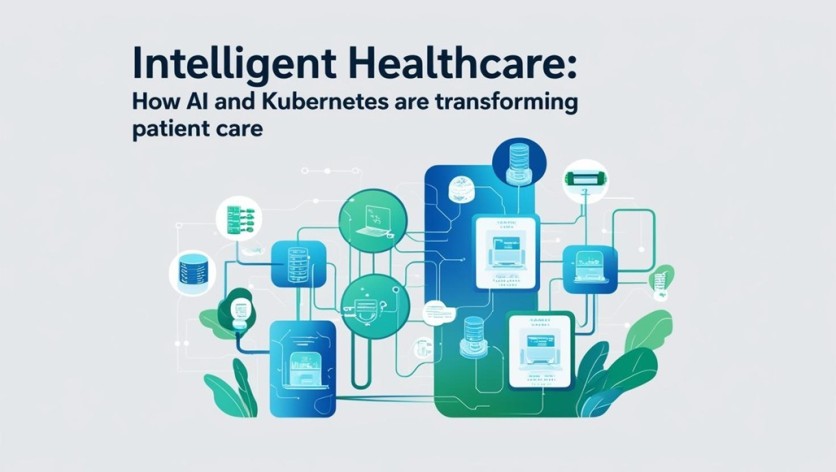
The future of healthcare is being reimagined through the convergence of intelligent systems and adaptable technology. As healthcare needs continue to grow rapidly across populations, Nawazpasha Shaik, a technology thought leader in healthcare innovation, explores the synergistic integration of predictive analytics and dynamic infrastructure to reshape patient outcomes. His work provides a future-oriented framework that places human expertise at the center of technological advancement, ensuring that innovation serves both patients and providers alike.
Predicting Health Before It Happens
The healthcare sector is undergoing a vital transformation, shifting from reactive treatment to proactive prediction. Artificial intelligence (AI) stands at the forefront of this shift, analyzing vast datasets—ranging from genetic information to lifestyle patterns—to identify health risks long before traditional diagnostics can. Predictive models are not just theoretical; they are now capable of forecasting potential cardiac events, strokes, and diabetic complications, offering healthcare providers a powerful tool to intervene early and enhance survival rates.
Dynamic Infrastructure for Dynamic Needs
Ensuring the success of predictive analytics requires a technological foundation capable of scaling in real time. Kubernetes, an open-source orchestration platform, meets this demand by dynamically allocating computational resources based on patient data flows. When hospitals experience surges—during disease outbreaks or emergencies—Kubernetes ensures that AI models continue to function optimally, preventing lapses in critical care. This elasticity of computing resources is essential for maintaining seamless healthcare operations under both routine and crisis conditions.
Human Judgment at the Core of Technology
Despite the technological prowess of AI, human expertise remains indispensable. The future of healthcare lies not in machine-led decisions but in a balanced collaboration where clinicians use AI-generated insights to inform their decisions. AI systems serve as vigilant partners, offering real-time alerts, predictive forecasts, and personalized treatment suggestions while respecting the clinician's judgment. This human-AI partnership is carefully structured to enhance, not override, the nuanced understanding that only medical professionals possess.
Adapting Workflows to Integrate AI Smoothly
For AI to meaningfully impact healthcare, it must fit within the existing clinical workflow. Systems are being designed to present information precisely when and where clinicians need it—streamlined, clear, and contextually relevant. Transparency in AI recommendations is critical: doctors must not only see what the system suggests but also understand the rationale behind it. This integration ensures that AI augments clinical efficiency rather than adding to the cognitive burden of already demanding medical environments.
Overcoming Challenges on the Road to Innovation
Implementing AI and Kubernetes at scale comes with its share of challenges. Chief among them are concerns about data privacy, technical hurdles in integrating with existing healthcare systems, and cultural resistance from healthcare providers wary of algorithmic decision-making. However, strategies such as privacy-by-design frameworks, customized scaling policies, and comprehensive clinician education programs are addressing these barriers effectively. Building clinician trust through phased rollouts and demonstrable clinical benefits is proving crucial for successful adoption.
Measurable Improvements in Outcomes and Efficiency
The real-world impact of these innovations is already being documented. Healthcare systems deploying AI-powered predictive models report better resource allocation, faster response times during patient surges, and more targeted treatments. Metrics like precision, recall, and system response times validate that these technologies are not just theoretical advancements—they are producing tangible improvements in patient care and operational efficiency. Crucially, outcomes show that systems equipped with dynamic infrastructure outperformed traditional setups during times of crisis, proving the resilience and adaptability of this integrated approach.
The Path Forward: Smarter Systems and Broader Horizons
Emerging research points toward even smarter orchestration systems where AI not only powers healthcare applications but also manages infrastructure itself. Future Kubernetes deployments may incorporate machine learning-based resource management, enabling even faster and more intelligent scaling based on predicted healthcare demands. Moreover, the move towards federated learning—training AI models across multiple institutions without pooling sensitive data—promises to maintain privacy while expanding the diversity and accuracy of predictive healthcare models.
In conclusion, by combining AI's predictive prowess with Kubernetes' scalable architecture, healthcare is moving into an era defined by personalization, resilience, and proactive care. The insights offered by Nawazpasha Shaik highlight that the success of these innovations hinges not just on technical sophistication but on a thoughtful integration with human clinical expertise. As these systems evolve, they promise a healthcare future where technology and humanity coalesce to deliver more effective, compassionate, and anticipatory medical care.
ⓒ 2026 TECHTIMES.com All rights reserved. Do not reproduce without permission.





